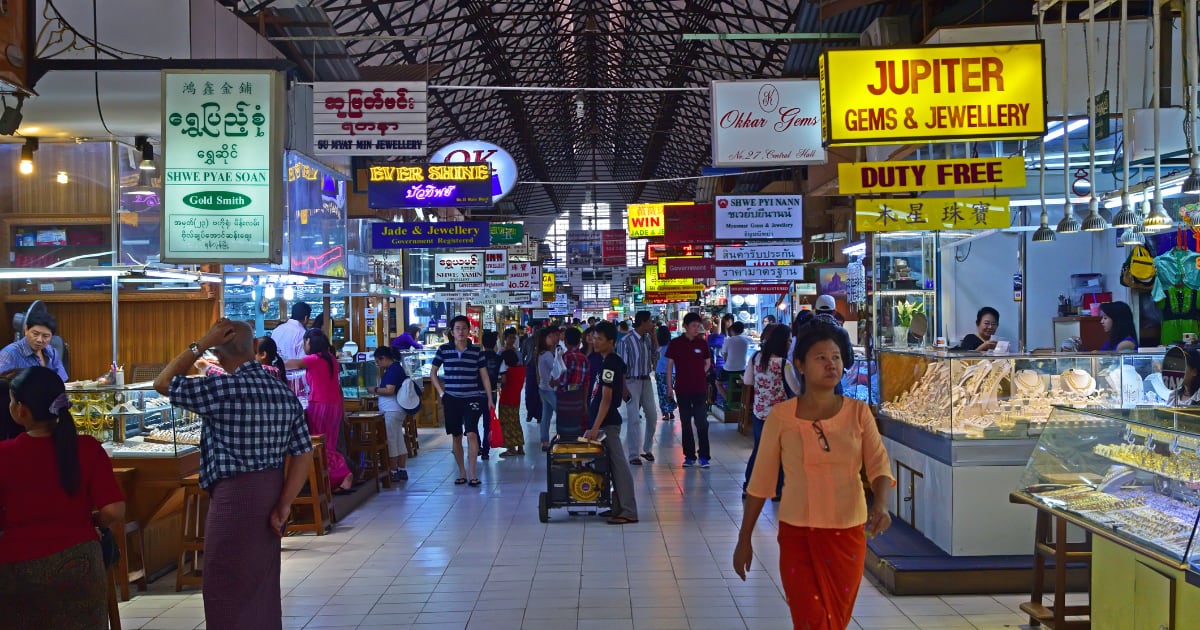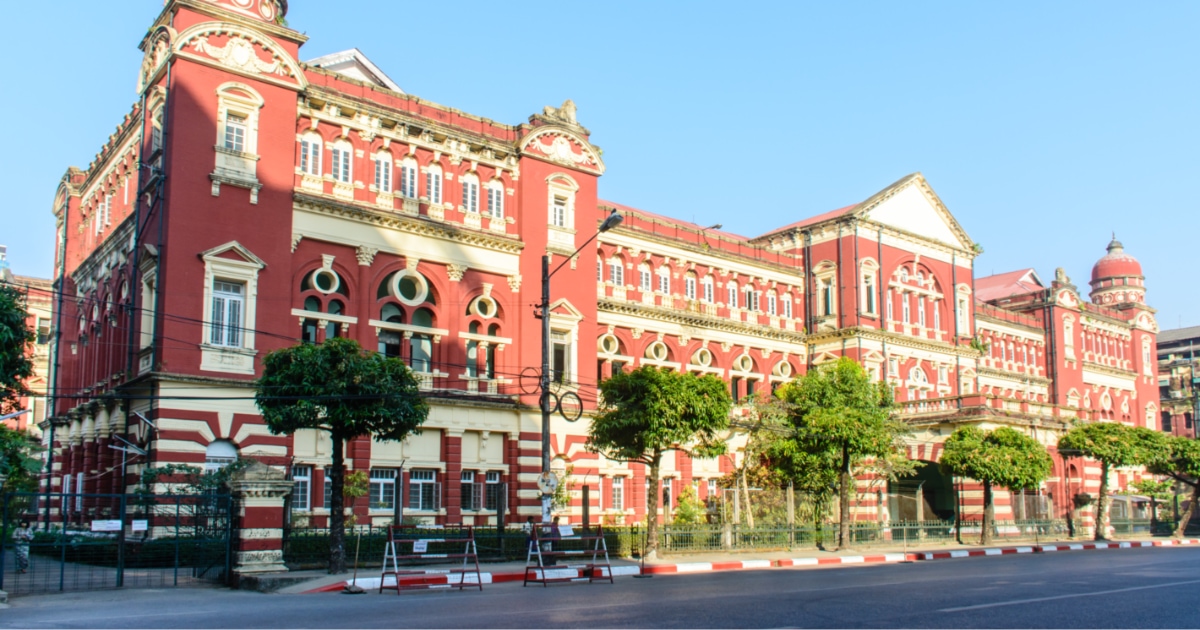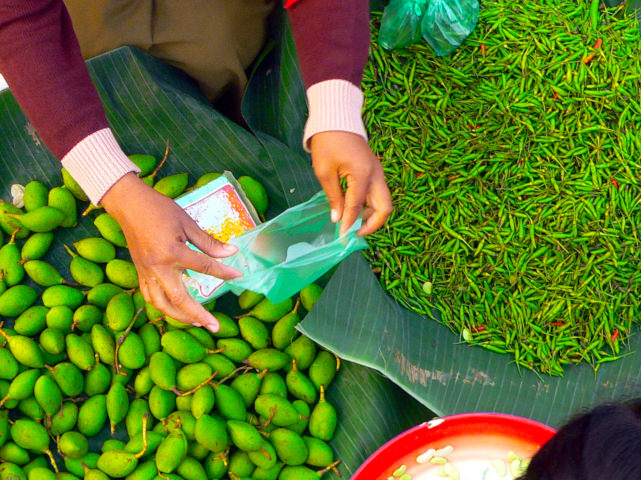Download PDF | Download word version
Restrictions on the participation of foreign insurers in Myanmar’s insurance market are to be eased as part of on-going sector reform (Insurance Reforms). Foreign insurers will soon be permitted to offer an expanded range of insurance products in competition with local insurance providers and the state-owned Myanma Insurance Co. Limited (Myanma Insurance). Foreign companies will also be permitted to act as insurance brokers and agents.
Introduction to Myanmar’s Insurance Reforms
In March 2018, Daw Sandar Oo, Managing Director of the state-owned Myanma Insurance and Chairperson of the Myanmar Insurance Association confirmed the Government still intends to move forward with its Insurance Reforms. At the Myanmar Investment Forum 2017, Daw Sandar Oo had said the Government would publish a reform blueprint by the end of September 2017; however interruptions to sessions of Myanmar’s parliament, a lack of a clear annual parliamentary calendar, and a legislative backlog have put a brake on the Government’s reform schedule.[1] The Insurance Reforms are intended to liberalise the domestic insurance market creating price and product competition among insurers, and ultimately benefiting the Myanmar public.[2] They additionally contain measures aimed at ensuring the sustainability of local players by requiring international insurers to transfer technology and expertise to local issuers through local-foreign joint ventures. However, the Government’s delay in introducing the proposed Insurance Reforms means foreign participation in Myanmar’s insurance sector remains strictly limited. In the absence of liberalisation, Myanmar’s insurance sector remains critically under-developed and systemically weak displaying a lack of product sophistication, a shortage of insurance industry professionals with appropriate qualifications and experience, inadequate IT systems, a lack of reliable actuarial data, outmoded standards in respect to reserve requirements, limited public awareness of insurance products and services, as well as a more general lack of transparency in relation to the risk exposure of individual insurance companies.
Overview of Myanmar’s Insurance Sector
The legislative and regulatory framework of Myanmar’s insurance industry consists of legislation from different eras in Myanmar’s history, together with subsidiary law, such as implementing rules and notifications drafted by Government ministries and departments. The key legislation consists of The Myanmar Insurance Law (1993), the Insurance Business Law (1996), and The Insurance Business Rules (1997). Other ‘non-insurance’ specific legislation includes provisions relating to insurance and the management of risk. For example, Myanmar’s Foreign Investment Law (2015) applies to the insurance cover of foreign-invested projects in certain sectors of the economy. The Third Party Liability Insurance Rules (2003) are subsidiary to The Myanmar Insurance Law and require Myanmar motorists to possess third party liability insurance. Many of Myanmar’s numerous and unconsolidated employment laws contain provisions relating to occupational health insurance, medical insurance and employee insurance schemes.
The Insurance Business Supervisory Board
The Insurance Business Supervisory Board (IBSB) is Myanmar’s insurance industry regulator. It is authorised to perform a wide range of regulatory and supervisory functions by the Financial Regulation Department of the Ministry of Finance (MoF). It is responsible for scrutinising applications for business licences received from insurance companies, underwriting agents and brokers; and for determining (with the approval of the MOF) the amount of paid-up capital to be maintained by an insurer or underwriting agent according to the type of insurance to be provided; the principles upon which evaluation of assets and liabilities of an insurer or underwriting agent is to be based and the limit of investment for any insurance fund.[3] The IBSB is additionally responsible for determining the licence fees and annual fees to be paid by insurers, underwriting agents and insurance brokers. The IBSB is also the authority responsible for training and education in Myanmar’s insurance’s sector which includes the dissemination of information about the sector to the public, and communicating with international insurers and insurance associations in order to secure the transfer of know-how and technologies. The IBSB’s board is composed of representatives of different Government Ministries, Departments and agencies, including the Directorate of Investment and Company Administration, the Office of the Attorney-General, the Ministry of Finance’s Internal Revenue Department and Budget Department and the Myanmar Central Bank. Private insurance companies are not represented.
Myanmar Insurance Companies
Myanma Insurance
Myanma Insurance was established by the Myanmar Insurance Law in 1993 as the monopoly provider of insurance cover in Myanmar. It is authorised to issue life insurance as well as a range of non-life insurance policies. It manages the State’s three national insurance funds (Life Fund, General Fund and General Reserve Fund) and maintains substantial reinsurance cover. Myanma insurance is underwritten by the Government, meaning it should always be adequately capitalised to meet all legitimate policy claims and unlikely to become insolvent. According to the Central Bank of Myanmar, Myanma Insurance underwrote 45.5% of the total gross premiums in the first quarter of 2017.[4]
Private Insurance Companies
In November 2012, the IBSB invited insurance business licence applications from private insurance companies. It received applications from 20 insurers, 12 of which it deemed to meet its licensing criteria. The successful firms were predominantly subsidiaries of Myanmar conglomerates or banks, or were military-owned corporations.[5] On 12 June 2013 Insurance Public Company Limited and Grand Guardian Insurance Public Co., Ltd became the first local private insurers to commence operations. Licencees were required to commence operations within 1 year from the grant of their licence.
| Private Insurance Companies in Myanmar | ||
| Name | Affiliated To | |
| 1 | IKBZ Insurance Public Company Limited | Kanbawza Bank Ltd |
| 2 | Grand Guardian Insurance Public Co., Ltd | Shwetaung Development Company Ltd |
| 3 | Citizen Business Insurance Company* | Co-operative Bank Ltd |
| 4 | First National Insurance International Company* | Htoo Group |
| 5 | Young Insurance Global Co., Ltd. | Young Investment Group |
| 6 | Global World Insurance Company* | Asia World Company Ltd |
| 7 | Excellent Fortune Insurance Company | Jade King and Queen Company Ltd |
| 8 | AungThtsaOo Insurance Company* | UMEHL |
| 9 | Pillar of Truth Insurance Company | Parami Energy of Oil and Gas Company Ltd |
| 10 | Capital Life Ltd. Insurance | Diamond Star Company Ltd. |
| 11 | Ayeyar Myanmar Insurance Company | Ayeyarwady Bank Ltd. |
| 12 | AungMyintmo Min Insurance Company* | Myanmar Economic Corporation |
Initially the IBSB permitted insurers to offer just nine types of insurance cover which included four life insurance products (life, group term life, snake-bite, and sportsman life) and five general (or non-life) insurance products (fire, motor, fidelity, cash-in-transit, cash-in-safe). In May 2014, the IBSB extended this product list to include ‘Special Travel Insurance for Express Ways’, mandatory insurance coverage for locals and foreigners traveling more than 100 miles on Burma’s roads.[6] [Insurers are not permitted to offer health insurance.]
Pursuant to the Insurance Business Law the IBSB requires all private insurers to sell the same products, at the same prices, with the same coverage, and including the IBSB’s prescribed terms and conditions. Myanmar’s insurance sector can therefore be described as being only partly privatized or alternatively a largely uncompetitive oligopoly of 12 insurance companies.
Private insurers are required to surrender premiums beyond a certain level to an insurance fund managed by Myanma Insurance. This requirement is essentially a mandatory form of co-insurance. Co-insurance and reinsurance arrangements are important tools in the underwriting of risk to support investment in developing countries, where turbulent economic conditions, natural disasters (such as cyclone Nagris which devastated much of southern Myanmar in 2008) or civil unrest can sometimes precipitate crises the insurance sector. Insurers can mitigate their risks through the group umbrella protection of co-insurance reinsurance schemes.
Minimum capital requirements
The Insurance Law sets out the minimum capital requirements that apply to Myanmar’s domestic insurance companies. The minimum capital requirement is determined according to the forms of insurance coverage the company is authorised to provide.
| Type of Insurance | Myanmar Kyats (Billion)* |
| Life insurance | 6
(or approximately US$4.5) |
| Non-life insurance (e.g. motor, fire, cash in safe, cash in transit, fidelity insurance and travel) | 40
(or approximately US$30) |
| Mixed / Composite | 46
(or approximately US$34) |
*MMK$1333 = US$1.00 as at 24 April 2018
10% of the paid up capital must be deposited with the Myanmar Economic Bank Limited as a provision for emergency compensation. Life insurers must additionally establish a Life Assurance Policyholders Protection Fund. 30% of the paid up capital must be used to purchase Government Treasury Bonds. No minimum capital requirement has been set for insurance brokers.
The Insurance Business Law is silent on many of the insurance services, products, and practices that are common in more sophisticated insurance markets. It does not contain any provisions on the transfer of insurance portfolios, insurance-outsourcing, consumer protection(s), or the marketing of insurance products.
Foreign Insurers in Myanmar
The State-Owned Economic Enterprises Law (1989) reserved banking and insurance activities for State-owned enterprises. In 1997, Malaysia’s Jerneh Insurance established a joint venture with Myanmar International Insurance Corporation, a subsidiary of the Myanmar Economic Corporation. The joint-venture company wrote local policies and enjoyed some initial success before it would-up its operations in 2002.[7] From 1989 to 2014 foreign insurers were permitted to write policies offshore before making them available via Myanma Insurance for a 15% commission, or 7% in the case of aviation policies. Technically, the Insurance Law did not prohibit foreign insurers from operating in Myanmar; however no licenses have ever been issued to foreign insurers under the Insurance Law.
Representative Offices
Foreign insurers are permitted to establish representative offices (Representative Offices) in Myanmar. These are ‘liaison offices’ only and their activities are limited to market research and the provision of support to an international insurers clients operating in Myanmar. Representative Offices do not have limited liability. Foreign insurers are prohibited from providing insurance services to the public through their Myanmar Representative Offices. To date 24 foreign insurance companies had established Representative Offices in Myanmar.[8]
Foreign Insurers operating in Myanmar’s SEZs
On 27 August 1989, the Government enacted the Myanmar Special Economic Zone Law (SEZ Law).[9] The SEZ Law provides a framework for the development and operation of Myanmar’s Special Economic Zones (SEZs) such as those under construction in the Thilawa, Kyaukpyu, and Dawei. The SEZ Law sets outs the types of businesses permitted to establish in the SEZs, the structure of foreign investment, the duties of developers and investors, and land use. The Thilawa SEZ is a joint-venture between the Governments of Japan and Myanmar. In 2014, three Japanese insurance companies, Sompo Japan Nipponkoa Insurance Inc., Tokio Marine & Nichido Fire Insurance Co. Limited, and Mitsui Sumitomo Insurance Group Holdings Inc., were awarded ‘special economic zone licences’ (SEZ Licence(s)) allowing them to provide insurance cover to companies establishing in the Thilawa SEZ. In November 2016, the IBSB issued a notice stating that foreign insurance companies operating local Representative Offices for a period of three or more years were eligible to apply for an SEZ Licence to provide insurance to companies in the Thilawa SEZ. The forms of insurance that can be provided by an SEZ Licence holder are limited to:-
- property insurance;
- motor insurance;
- marine cargo insurance;
- contractors’ all-risk insurance; and
- cash transfer insurance.
An SEZ Licence holder cannot operate outside the SEZ to which its licence relates. To be eligible to operate in Myanmar’s SEZs, foreign insurance companies are required to have an operating history of 10 years together with a two-year operating history in the ASEAN region. The initial fee for an SEZ Licence is US$30,000. An annual fee of US$10,000 also applies. Foreign insurers establishing in an SEZ must have at least US$1 billion in capital funding as well as a net asset value of at least US$1 billion.[10] Foreign insurers are required to work in partnership with domestic insurance firms.
The Myanmar Foreign Investment Law
Myanmar’s Foreign Investment Law (2015) (FIL) [11] strictly regulates investment in certain economic activities in Myanmar. Generally these are activities in sectors which the Government considers strategically important, are capital intensive, or which are likely to have a significant impact on the environment or local communities. The FIL contains a number of incentives for investors including tax exemptions and reliefs, among other privileges. FIL-structured investments require the approval of the Myanmar Investment Commission (MIC). All FIL-structured / MIC-approved foreign invested projects are required to obtain insurance from a Myanmar insurance company.[12] This requirement to obtain local insurance applies irrespective of whether or not the foreign investor already holds policies providing coverage for the proposed investment in Myanmar. The FIL further contains a number of provisions guaranteeing investors’ rights in respect to the transfer of funds offshore. Investors can transfer offshore insurance payouts made by Myanmar insurers ‘freely and without delay’.[13] The FIL requires foreign investors to obtain insurance cover for the benefit of its employees, and to contribute to workers’ compensation funds and the State’s social welfare fund.
Summary of Key Insurance Reforms
- Foreign insurers to be permitted to underwrite a wide range of insurance products and services
- Foreign insurers will be required to obtain an MIC permit
- The IBSB will only accept licence applications from foreign insurers who have already established a Representative Office
- Insurers will be required to conduct a survey to determine the potential breakdown between life and non-life products.
- Foreign insurers providing mixed / composite insurance will be required to form a joint-venture with one of Myanmar’s 12 licenced insurance companies.[14] The local partner will be required to take a minimum 35% share in the joint-venture company.
- There is no proposed limit on the number of licenses to be issued to insurers providing life insurance only
- Foreign insurers providing life insurance will be permitted to establish wholly-owned local subsidiaries
[1] Renaud Egreteau, ‘Myanmar’s legislative agenda slowed by parliamentary schedule’; The Nikkei Asian Review, 6 May 0, 2017 https://asia.nikkei.com/Viewpoints/Renaud-Egreteau/Myanmar-s-legislative-agenda-slowed-by-parliamentary-schedule
[2] Dan Sandar Oo ‘Daw Sandar Oo, Managing Director, Myanma Insurance; and Chairperson, Myanmar Insurance Association: Interview’ https://oxfordbusinessgroup.com/interview/inclusive-development-daw-sandar-oo-managing-director-myanma-insurance-and-chairperson-myanmar;
[3] Insurance Business Law, paragraph 7
[4] ‘Myanmar insurance industry poised for reform, awaits liberalisation’ by Kang Wan Chern; The Myanmar Times; 12 April 2018, https://www.mmtimes.com/news/myanmar-insurance-industry-poised-reform-awaits-liberalisation.html
[5] Picon, Tony; “Colliers Flash, Yangon l Insurance Market “From Snakebites to Cyber”; 6 March 2017
[6] http://www3.asiainsurancereview.com/Magazine/ReadMagazineArticle?aid=35419
[7] State-Owned Economic Enterprises Law, paragraph 3 (h)
[8] Kang Wan Chern; ‘Myanmar insurance industry poised for reform, awaits liberalisation’; The Myanmar Times, 12 April 2018
[9] The Dawei Special Economic Zone Law (2011) contains additional provisions in respect to the establishment and operation of the Dawei SEZ.
[10] Asia insurance review;” Myanmar: Foreign insurers must have at least US$1 bln in capital funding” 27 March 2017. www.asiainsurancereview.com
[11] The 2015 FIL consolidates and replaces The Myanmar Citizens Investment Law, Pyidaungsu Htluttaw Law No. 18 of 29 July 2013 and The Foreign Investment Law, Pyidaungsu Htluttaw Law No. 21, 2012, 2 November 2012 and associated regulations.
[12] FIL, paragraph 73
[13] FIL, paragraph 58 (b)
Myanmar insurance sector reform
Insurance reforms in Myanmar
Foreign insurers in Myanmar
Myanmar’s insurance market
Myanma Insurance Co. Limited
Local foreign joint ventures in Myanmar
Myanmar Insurance Law
Myanmar’s Foreign Investment Law
Myanmar Third Party Liability Insurance Rules
Myanmar insurance market
Foreign insurance company in Myanmar
This newsletter is for information purposes only. Its contents do not constitute legal advice and it should not be regarded as a substitute for detailed advice in individual cases.
Transmission of this information is not intended to create and receipt does not constitute a lawyer-client relationship between Charltons and the user or browser.
Charltons is not responsible for any third party content which can be accessed through the website.
If you do not wish to receive this newsletter please let us know by emailing us at unsubscribe@charltonslaw.com








